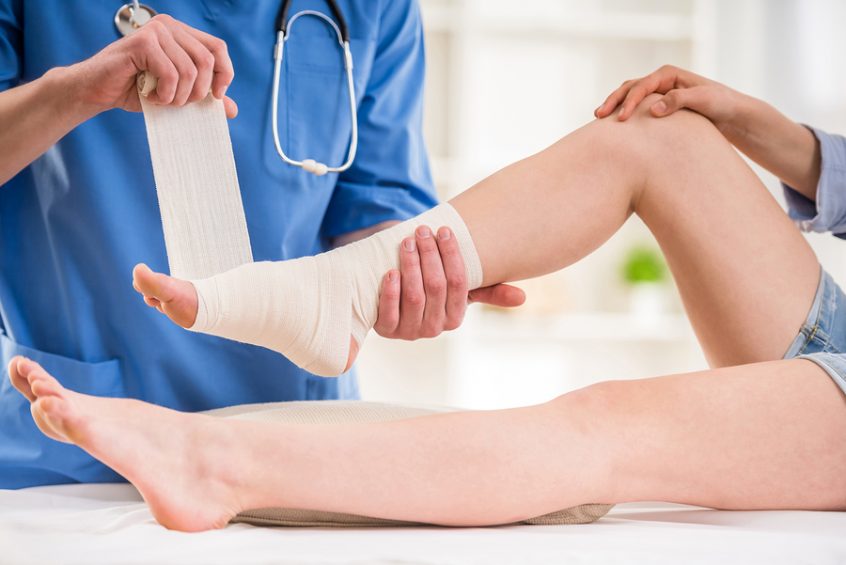We’ve all probably been in or know someone who has had a bad accident. In most cases, we think to let insurance handle things. The problem is, insurance companies assign monetary values to injuries that do not account for all life factors that are affected by an injury.

Beyond just filing an insurance claim after an accident, there are many steps to take to protect yourself and your assets in the event that you suffer financial damages, loss of work, and prolonged debt as a result of injury. We’ll break down some tips to help you protect your personal and financial well-being after an accidental injury.
Tip #1: Take Care of Your Health
Most of the time when we see commercials about personal injuries, the focus is on contacting a lawyer. While that’s part of it, the first thing you should always do is get the medical help you need.
Many people choose to forgo proper medical attention due to the costs and then wind up in worse shape later on as a result. You cannot protect your financial well-being by neglecting your healthcare needs. The reason for insurance is to cover the cost of medical bills. If you are in a situation where your insurance won’t cover the expenses, which is likely, that’s where our tip #2 comes in.
Tip #2: Contact A Lawyer Right Away
It can seem like it’s unnecessary to contact a lawyer after an accident, but if the accident wasn’t your fault, then you’re owed compensation for whatever happens to you. Many people wait until pain increases and bills pile up before they decide to get a lawyer. Like we stated, insurance isn’t going to replace your job, or pay for all of your expenses while you’re injured and out of work. In some cases, it may barely cover medical bills.
One of the biggest reasons to contact a personal injury lawyer immediately is due to the statute of limitations. While you don’t have a time limit to file an insurance claim, you do have one if you intend to sue for damages and compensation.
A lawyer is typically the only way to recuperate all your losses after an injury and to protect your financial stability then and into the future.
Tip #3: Document Everything
We can’t stress this enough. After you’re injured, you can expect to need plenty of documents. Not only do you need documentation of everything to file a lawsuit, but you also want to document everything for financial purposes. Keeping track of bills, expenses, losses, and anything that comes up as a result of injury treatment, medication, or your claim.
Taking pictures of your injuries and the circumstances will help your case, but cataloging all your expenses will help you keep track of everything while you wait on the insurance company to respond. It’s easy to get overwhelmed as you try to recover and keep things going. The better you keep track of everything, the better you can manage them and keep your finances in order.
Final Thoughts
No one WANTS to get injured. If you do, you want to handle things the right way to prevent things from getting worse. Start by taking care of yourself. Then seek help with getting adequate compensation. Lastly, try not to get buried under the mountain of bills and paperwork that comes in. If you follow these simple tips, you can protect your financial well-being and come out of a personal injury in a good position.
